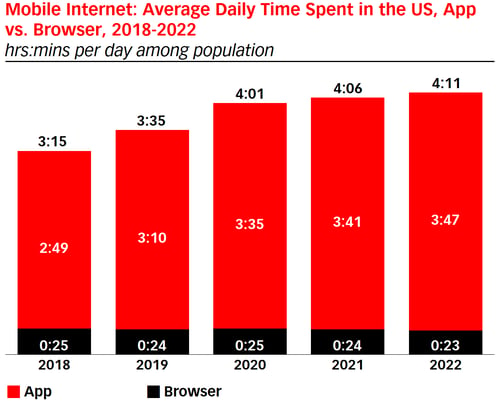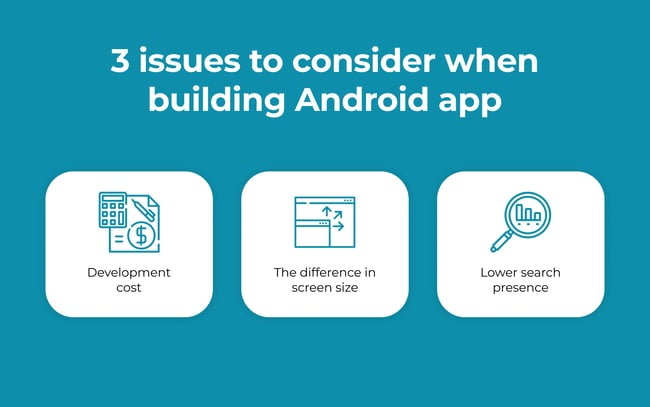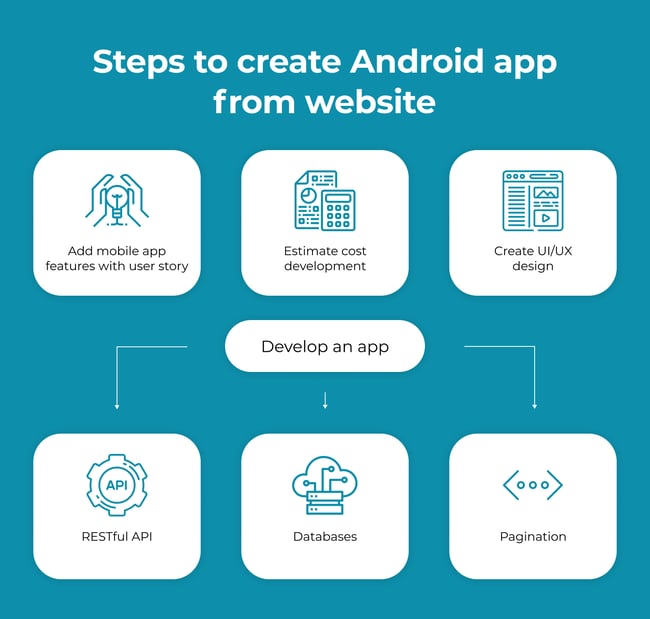Converting Your Website into a Mobile App: A Strategic Move for Modern Businesses
6 min read

In today's digital age, where smartphones have become an integral part of our daily lives, businesses are constantly seeking innovative ways to enhance their online presence and engage with their target audience effectively. One such strategy gaining traction is the conversion of websites into mobile applications. This transformation not only caters to the evolving needs and preferences of mobile users but also offers a myriad of benefits for businesses looking to stay ahead in the competitive landscape of the digital realm.

Why Consider Converting Your Website into a Mobile App?
The rise of smartphones has revolutionized the way we access information and interact with brands. With over half of all website visits originating from mobile devices, it's essential for businesses to ensure a seamless and user-friendly experience across all platforms. Converting your website into a mobile app offers several advantages:
Improved Accessibility: Once installed, mobile apps provide users with instant access to your content, eliminating the need to open a web browser separately. This convenience encourages higher engagement and interaction with your brand.
Enhanced User Experience: Mobile apps allow businesses to tailor the user interface and functionality specifically for mobile devices, providing a more intuitive and enjoyable experience for users on the go.
Better Search Engine Visibility: Mobile-friendly websites and apps are favored by search engines like Google, leading to higher rankings in mobile search results. This increased visibility can drive more organic traffic to your app and website.
Utilization of Smartphone Features: Mobile apps can leverage built-in features of smartphones, such as push notifications, GPS, camera, and offline mode, to offer unique and personalized experiences to users.
Increased Customer Engagement: Push notifications enable businesses to proactively communicate with users, informing them about new products, promotions, or updates, thereby fostering ongoing engagement and loyalty.
Choosing Between Android and iOS: Considerations and Insights
When embarking on the journey of converting your website into a mobile app, one of the key decisions you'll face is choosing the platform(s) for your app. The two major platforms, Android and iOS, offer distinct advantages and considerations:
Android: With a larger global market share, Android appeals to a broader audience. However, the platform's fragmentation and device diversity pose challenges for app compatibility and optimization.
iOS: While iOS commands a smaller market share compared to Android, it boasts a more affluent user base and higher engagement rates. Additionally, Apple's strict app review process ensures a higher quality standard for apps available on the App Store.
Ultimately, the choice between Android and iOS depends on factors such as your target audience demographics, geographic location, budget, and desired features. Some businesses opt for cross-platform development to reach both Android and iOS users simultaneously, albeit with additional development complexities.
Critical Factors to Consider When Converting Websites to Mobile Apps
Before diving into the app development process, it's essential to carefully evaluate various factors that can influence the success of your mobile app:
Development Cost: Native app development can be a significant investment, requiring skilled developers and resources. It's crucial to assess your budget and explore cost-effective options without compromising on quality.
User Interface and Experience (UI/UX): A seamless and intuitive UI/UX design is paramount for mobile apps to ensure user satisfaction and retention. Collaborating with experienced designers can help create visually appealing and user-centric interfaces.
Performance and Optimization: Mobile apps must be optimized for performance, speed, and compatibility across different devices and screen sizes. Rigorous testing and optimization are essential to deliver a smooth and responsive user experience.
Integration with Backend Systems: If your website relies on backend systems or databases, ensure seamless integration with your mobile app to maintain data consistency and functionality.
Security and Compliance: Protecting user data and ensuring compliance with privacy regulations (e.g., GDPR, CCPA) are critical considerations for mobile app development. Implement robust security measures and encryption protocols to safeguard sensitive information.

Steps to Convert Your Website into a Mobile App

Converting your website into a mobile app involves a structured process to ensure a successful transition and optimal performance:
Assess the Need: Determine whether a mobile app aligns with your business objectives and enhances the user experience compared to your website.
Define Features and Requirements: Identify key features and functionalities required for your app, prioritizing those that offer value to users and align with your business goals.
Choose Development Approach: Decide whether to opt for native app development (iOS, Android) or cross-platform frameworks (e.g., React Native, Flutter) based on your budget, timeline, and target audience.
Select Development Team: Hire experienced developers or collaborate with reputable development agencies with expertise in mobile app development to bring your vision to life.
Design User Interface: Develop wireframes and UI mockups to visualize the app's layout, navigation, and visual elements. Focus on creating a cohesive and intuitive design that resonates with your brand identity.
Develop and Test: Begin the development process, coding the app's frontend and backend functionalities. Conduct thorough testing across various devices, operating systems, and scenarios to identify and rectify any bugs or performance issues.
Deploy and Launch: Submit your app to the respective app stores (Google Play Store, Apple App Store) following their submission guidelines and await approval. Once approved, your app will be available for download by users.
Monitor and Iterate: Continuously monitor user feedback, analytics, and performance metrics to identify areas for improvement and iterate on your app's features and functionality accordingly.
Successful Examples of Website-to-App Conversions
Numerous businesses across various industries have successfully converted their websites into mobile apps, offering seamless experiences to their customers:
The New Yorker: A renowned magazine that transitioned from print to web and mobile, offering a comprehensive app with news, articles, and interactive features.
H&M: A leading fashion retailer that provides a mobile app for shopping, browsing collections, and personalized recommendations, enhancing the retail experience for its customers.
Blue Apron: A meal kit delivery service that streamlined its ordering process and recipe management through a mobile app, catering to users' culinary needs on the go.
Calendly: A scheduling application that enables professionals to manage their appointments and meetings efficiently, leveraging mobile accessibility and real-time notifications.
Canva: A graphic design platform that extended its web-based tools to mobile devices, empowering users to create and edit designs on the move.
Conclusion: Embrace the Mobile-First Approach
In conclusion, converting your website into a mobile app presents an opportunity to engage with your audience more effectively and adapt to evolving consumer behaviors. By prioritizing mobile accessibility, user experience, and functionality, businesses can elevate their online presence and stay competitive in today's mobile-centric landscape. With careful planning, strategic decision-making, and the right development partners, you can successfully transition from a website to a feature-rich mobile app that delights users and drives business growth.
Looking to embark on your website-to-app journey? Explore Appitnow, our innovative SaaS platform that simplifies the process of converting websites into powerful mobile applications. With Appitnow, you can unlock the full potential of mobile engagement and provide a seamless experience to your audience across devices.
